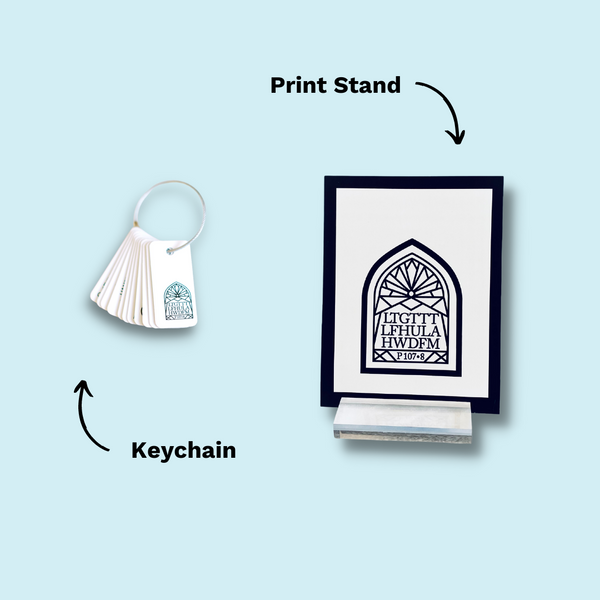do not merely listen to the word, and so deceive yourselves. do what it says. — James 1:22
“I’m starting with the man in the mirror. I’m asking him to change his ways.”
You know the song. You’ve heard the message: “Take a look at yourself, then make a change. Nana na, nana na, na na na.” Sorry, I couldn’t help myself! Seriously though, it’s a message that resonates with us—with all people—because we know it’s true. If we’re being honest, we constantly fall short not just of God’s perfect standard but even of our own simple goals and ideals for our lives. It’s why we make resolutions and read self-help books. It’s why we make deals with ourselves about how we’re going to be better this time. This song tells us if “we want to make the world a better place,” we’ve gotta “take a look at [ourselves] and make a change.” It’s a pull-yourself-up-by-your-bootstraps kind of message. Do it because you feel bad about the world and your part in making it bad. You can make it better. Now just do it.
At first glance, our verse seems a lot like this song.
It’s a “just do it” kind of verse. Don’t just listen to God’s Word. Do it. Stop lying to yourself and make a change. All by itself, our verse hits me like a gut punch. It’s not wrong. I do lie to myself. I tell myself that I’m living out God’s Word in my everyday life, but deep down I can think of a million different ways that I fall short of what the Bible says I should be doing. So, what do I do with all of this? Pull up my “good Christian” bootstraps and try harder?
Let’s take a closer look and see if the context doesn’t help us out a bit.
“Do not merely listen to the word, and so deceive yourselves. Do what it says. Anyone who listens to the word but does not do what it says is like someone who looks at his face in a mirror and, after looking at himself, goes away and immediately forgets what he looks like. But whoever looks intently into the perfect law that gives freedom, and continues in it—not forgetting what they have heard, but doing it—they will be blessed in what they do.” — James 1:22-25
Well, there you have it. There is a mirror, and that mirror is God’s Word. And when we look into it, it should change us. If it doesn’t, we are the fool who forgets what we look like. That metaphor makes a strong impression doesn’t it? We don’t want to play the fool, forgetting what we’ve seen in the mirror of God’s Word. Yet, so often we are that fool. At least, I am. So what should we do instead? We should do what the Word says. At first glance, this message certainly does sound like that “just do it” message from the song. Look in the mirror and make a change. Period. It’s the right thing to do. But that message, all by itself, feels unattainable, impossible, even anti-gospel. How do we reconcile it with the rest of the Bible?
We need to look closer at the mirror.
Remember, the mirror is God’s Word. But James also calls it something else. He calls it “the perfect law that gives freedom.” Freedom? What can that mean? How can the perfect law also give us freedom? Isn’t the law how we know our failures? Isn’t the law what exposes our guilt? Yet somehow, James is telling us that when we look intently into the mirror of God’s perfect law, we are given freedom, not a heavy yoke of guilt because of our failures. And James doesn’t let this point go. He refers to it again in chapter two saying, “Speak and act as those who are going to be judged by the law that gives freedom” (James 2:12). What law can he possibly be talking about?
What kind of law gives freedom?
Thankfully, Paul also talks about a law that sets us free. He says it this way, “Therefore, there is now no condemnation for those who are in Christ Jesus, because through Christ Jesus the law of the Spirit who gives life has set you free from the law of sin and death.” (Romans 8:1-2). Do you see the contrast between the two different laws? There is one law that gives freedom and one that brings death. And here’s the good news: believers in Jesus have been set free from the law of sin and death. Jesus fulfilled the requirements of the law perfectly and died the death we deserved for our sin. And when we believe in him, he releases us from that law, giving us his righteousness and his Spirit (read more in Romans 8:1-17 about this). So now, we live freely under the “law of the Spirit, who gives life.”
So, what do we do with that mirror?
We still look into it, only we don’t see what we did before. James says it this way, “But whoever looks intently into the perfect law that gives freedom, and continues in it—not forgetting what they have heard, but doing it—they will be blessed in what they do.” When we look intently into this new and better law, the law of the Spirit, we are able to “continue in that law.” We can walk by the power of the Spirit, free from the condemnation of our sin because Jesus has set us free. We are no longer burdened by the yoke of the law of sin and death. Instead, we are empowered to continue living in the law by the power of the Spirit. In this way, we are able to “continue in [the perfect law that gives freedom]—not forgetting what [we] have heard, but doing it.” And when we do that, we are truly blessed in what we do.
How have you been convicted by what you see in the mirror of God’s Word lately?
How is the true message of our verse good news instead of condemnation of our failures?
Thanks for reading, Natalie

Meet Natalie,Dwell co-founder
Hi there, I'm Natalie. I'm so glad you're here. I'd love to connect with you and hear more about what God is doing in your life!
ON THE PODCAST
James 1:22 Deep Dive // How You Live Your Life Matters
What is God’s Word supposed to do in our lives? And is my obedience really that important? We’re so glad you’re here today as Natalie Abbott, co-founder of Dwell Differently, unpacks James 1:22 for us, answering important questions, digging into the context, and helping us avoid 2 common dangers when reading this verse. Our prayer is that you would see James 1:22—which can feel a little bit like a kick in the pants—as a kindness from God, convicting us where we need it, and inviting us to live life in community as we seek to follow Jesus in our everyday lives. As Natalie says, “I hope that it brings us to a place of repentance and restoration, which is God’s heart for us as his people.”




